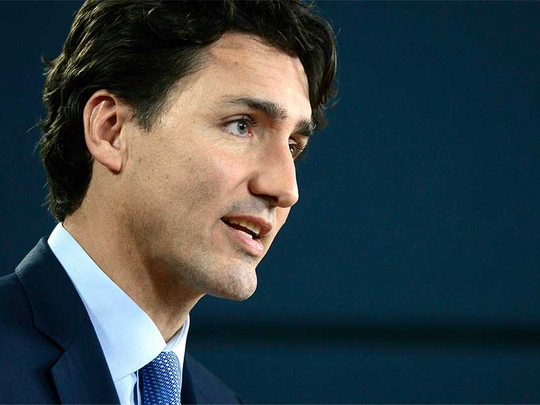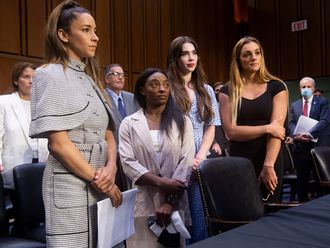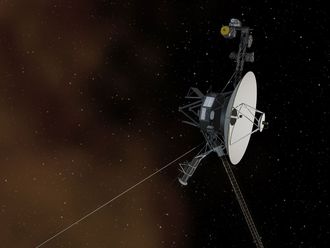
WASHINGTON
More than two decades ago, with Donald Trump already atop a real-estate empire, a young Justin Trudeau set out to explore the world.
He toured Europe and Africa with friends, hiding their beer from customs agents before boarding the Trans-Siberian railway to China. On the train, he sketched, read “War and Peace” and gazed at the remnants of the Soviet Union. It was a defining trip, he’d later write, that left him praising both diversity and compromise.
Both values will be tested today. The now-45-year-old Canadian prime minister — hailed by Joe Biden as one of the last champions of liberalism — heads to Washington for his first meeting with the new US president, 70, whose bellicose statements and immigration restrictions reveal a deep gulf between the two leaders.
But US liberals hoping for Trudeau to emerge as Trump’s foil shouldn’t hold their breath. He’s already bit his tongue and focused almost exclusively on an economic relationship that accounts for three-quarters of Canada’s exports. The White House visit will test just how far Trudeau can go to woo the president and preserve trade without selling out his core values.
“We both got elected on commitments to strengthen the middle class, and support those working hard to join it,” Trudeau said last week. “And that’s exactly what we’re going to be focused on.”
He has little choice. Nearly two-thirds of all Canadian trade is with the US, the highest ratio of Group of 20 nations and quadruple all but Mexico. Almost all of Canada’s oil goes to the US and most of the country’s manufacturing is geared toward meeting US demand. Americans hold $1.8 trillion (Dh6.6 trillion) in Canadian assets, almost exactly the same amount held by Canadians in the US.
Till now, Trudeau’s strategy has been to avoid becoming what his ambassador to the US called “collateral damage” in a trade war they consider to be largely aimed at Mexico.
Three senior emissaries — Foreign Minister Chrystia Freeland, Finance Minister Bill Morneau and Defence Minister Harjit Sajjan — laid the groundwork for Trudeau’s visit with their own trips last week to preach Canadian trade. Freeland has coined the lawmaker-by-lawmaker approach “granular diplomacy” and the trio, along with two other ministers, will join Trudeau at the White House to hammer home their message.
“When you get really tired of saying what you’re saying, repeat it as often as possible,” Paul Frazer, a consultant in Washington and former Canadian diplomat, told the Canadian Broadcasting Corp. “Because there are so many centres of power in this city.”
Trudeau’s visit isn’t without risk. Mexico’s Enrique Pena Nieto already cancelled a meeting at the White House as relations sour, while Trump is said to have had a heated call with Australia’s Malcolm Turnbull in part over a refugee deal. UK Prime Minister Theresa May courted the new president, declaring that “opposites attract” before later calling his travel ban “divisive and wrong.”
At home, Trudeau’s popularity has waned in recent months. He’s under pressure from the left-leaning New Democratic Party to denounce Trump. He partly did so, saying on Twitter after the US imposed travel restrictions that Canada’s doors are open to refugees and posting a photo of himself welcoming a Syrian family. Others are urging him to stick to business in Washington.
“It’s going to be very important that Mr. Trudeau doesn’t rise to some of the bait that he has in some of the Twitter feeds,” said Gerry Ritz, a former cabinet minister with the opposition Conservatives. “I think you have to take some of that on the chin and just let it go.”












